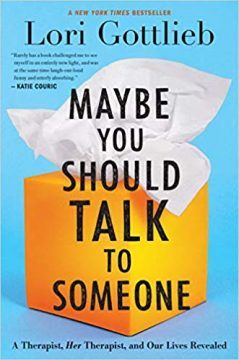Cal Flyn interviews Oliver Burkeman in Five Books:
 Cal Flyn: We’re here to talk about the best self-help books of 2019. Before we start, let’s define our terms: what does ‘self-help’ mean to you?
Cal Flyn: We’re here to talk about the best self-help books of 2019. Before we start, let’s define our terms: what does ‘self-help’ mean to you?
Oliver Burkeman: I’m always a bit loath to think of self-help as just those books that get that label in the book store. In fact, I think sometimes that they’re among the less helpful books. The idea that philosophy and therapy are separate things would make very little sense to the ancient Greeks and Romans. The earliest philosophy was fully intended to make a difference, to change the way one lived. But then, the same is true of religious writing.
Conventional self-help works best when you know what your problem is, and there are some fairly good, respected, scientifically-backed ways of dealing with that problem. In that case, it’s good to have them packaged and promoted. But I’m increasingly interested in the kind of books that make you question whether you know what your problem is, as good therapy also should. A therapist should at least bear in mind the possibility that the thing you think is wrong with you is not what’s wrong with you at all – or that nothing might be wrong with you.
More here.
